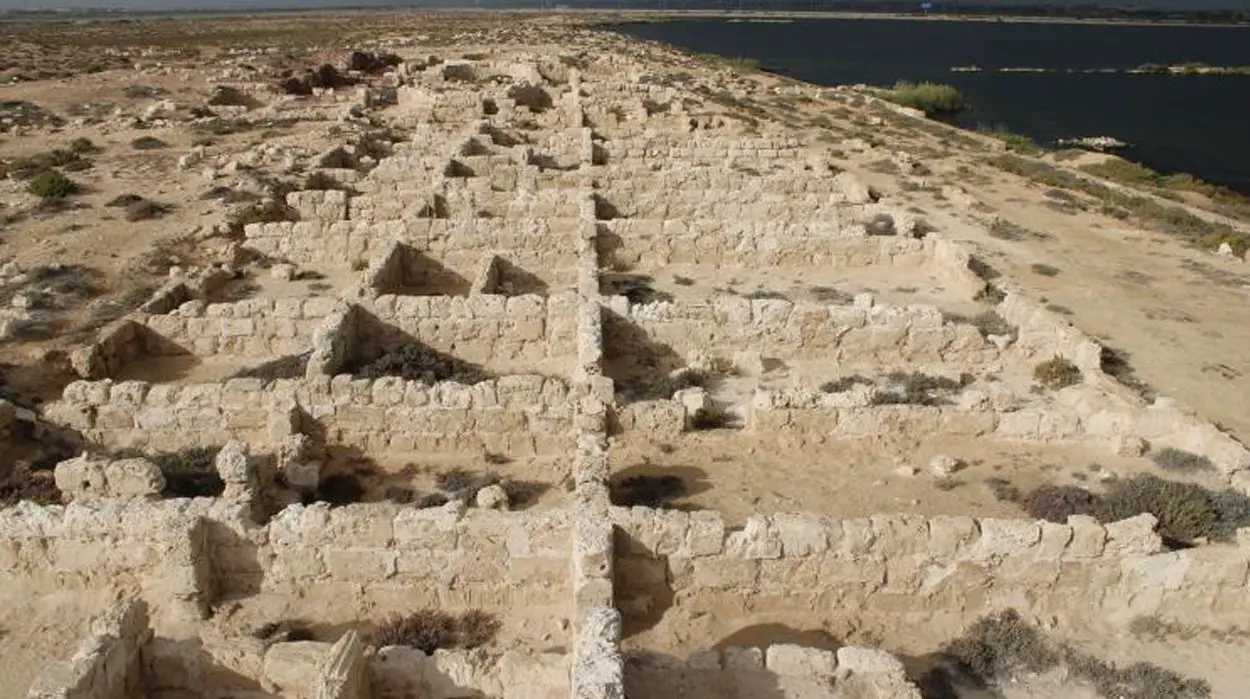Archaeologists excavating the ancient port settlement and cemetery of Marea in Egypt have discovered a complex urban precinct.
Marae was founded during the time of Alexander the Great from the 3rd century BC on the shores of Lake Mareotis, 45 kilometres west of Alexandria.
The settlement was an industrial centre and harbour, which was inhabited throughout the Hellenistic, Roman, Byzantine, and Early Islamic periods until the 8th century AD.
Excavations were conducted by the Centre of Mediterranean Archaeology of the University of Warsaw (PCMA), which applied non-invasive geophysical methods in conjunction with excavations.
The study revealed a detailed plan of one-story “modular” buildings from the 6th to 8th century AD, built on the ruins of a Roman farm producing wine, with the overall area studied covering an area of 13 hectares.
The precinct consists of what could be shops and residential dwellings located next to each other in neat linear rows, and a structure used during the 6th century by pilgrims who were travelling to the Christian shrine in Abu Mena.
The first construction boom in the region took place in the Hellenistic period, and later, when the Romans subjugated it. By the Islamic period, the volume of urbanised settlement meant that there was no need to construct further population centres, for which Dr. Mariusz Gwiazda from the PCMA said: “It was a big surprise for us, because around this period there was no new cities built in Egypt”. – Find out more
Header Image Credit : Mariusz Gwiazda





